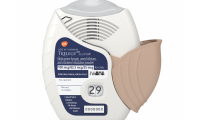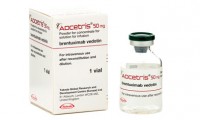-
Patient check-in platform Medical Mindset pulls in $1M
- Source: MobiHealthNews
- 705
- March 23, 2018
-
EMA starts review of Xtandi in non-metastatic prostate cancer
- Source: pmlive
- 1,218
- March 23, 2018
-
Tooth Sensor Measures Intake of Sugar, Salt, Alcohol
- Source: Med Gadget
- 1,566
- March 23, 2018
-
Prothena Announces Global Neuroscience Research & Development Collaboration with Celgene for Novel Therapies for Patients with Neurodegenerative Diseases
- Source: finance.yahoo
- 691
- March 22, 2018
-
Artificial intelligence firm twoXAR raises $10M for partnering drive
- Source: Fiercebiotech
- 787
- March 22, 2018
-
FDA expands approval of Adcetris for first-line treatment of Stage III or IV classical Hodgkin lymphoma in combination with chemotherapy
- Source: finance.yahoo
- 931
- March 22, 2018
-
New wearable brain scanner allows patients to move freely for the first time
- Source: Medical Xpress
- 756
- March 22, 2018
-
New AI technique dramatically improves the quality of medical imaging
- Source: Artificial Intelligence Research
- 770
- March 22, 2018
your submission has already been received.
OK
Subscribe
Please enter a valid Email address!
Submit
The most relevant industry news & insight will be sent to you every two weeks.













